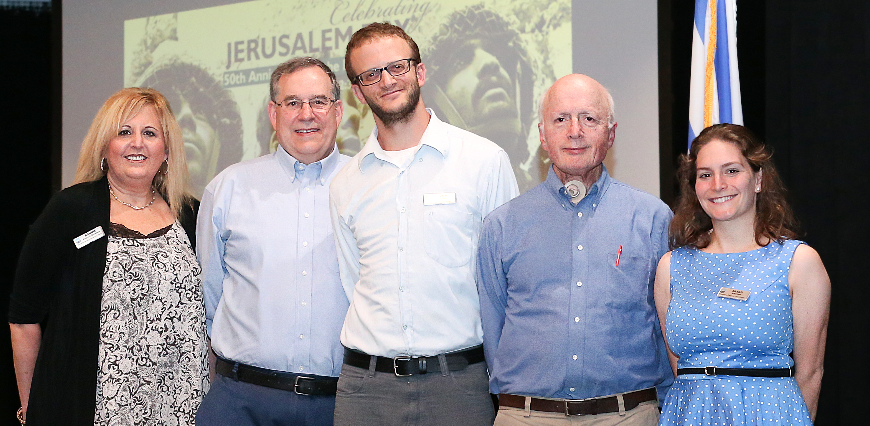Guest speaker recalls Israel's Six-Day War

By Sean Barron
YOUNGSTOWN
As a member of the Israeli Army, Dr. Itzhak Brook had been trained to defend his country against those who attacked during the Six-Day War.
But he also was trained to administer aid and help those who were wounded – even enemy soldiers.
“I guess they could not believe we would treat them as human beings,” said Dr. Brook, referring to the injured Jordanian soldiers he tended to as a medic in the Army during the war, which took place June 5 to 10, 1967. “I knew it was my duty to take care of all of the wounded soldiers.”
That was one of several memories Dr. Brook shared during a one-hour free program, Celebrate Jerusalem Day: The 50th Anniversary of the Reunification, on Sunday afternoon at the Jewish Community Center, 505 Gypsy Lane, on the North Side.
Sponsoring the event was the Jewish Community Relations Council of the Youngstown Area Jewish Federation.
Dr. Brook, who also served 27 years in the U.S. Navy, is a former chairman of the Anti-Infective Drug Advisory Committee in the U.S. Food and Drug Administration and current professor of pediatrics and medicine at Georgetown University in Washington, D.C. In addition, he penned two books, “My Voice,” which talks about his experiences and battles with throat cancer, and “In the Sands of Sinai: A Physician’s Account of the Yom Kippur War.”
Dr. Brook shared recollections of his early years in Haifa, Israel, which was toward the end of the British Mandate. In the late 1940s, Jews and Arabs were trying to gain control of the city, and hostilities between the two groups peaked in April 1948, when the British suddenly evacuated and a large organization called the Haganah took control, he noted.
Around the same time, many Jewish people who had survived World War II began to settle in Israel after having arrived from Europe. Others had been expelled from several Arab nations, he explained.
“Jews who survived the Holocaust came to Israel, and Israel grew about four times,” Dr. Brook told his audience of about 60.
Nevertheless, Israel suffered many terrorist attacks and raids during the 1950s before an 11-year period of relative peace between 1956 and 1967 took place, he continued, noting that tensions increased between Israel and Syria and other Arab countries in the months leading up to the Six-Day War.
On June 6, 1967, Jordan attacked Israel shortly before he graduated from medical school, Dr. Brook recalled, adding that he took care of those who had been evacuated and wounded.
After the Six-Day War, Jordan gave up its claims to the West Bank, and Israel took control of but never fully annexed that region, noted Bonnie Deutsch Burdman, the Youngstown Area Jewish Federation’s director of community relations and government affairs.
Nevertheless, East Jerusalem became part of Jerusalem during the larger city’s reunification, and the Golan Heights near the border with Syria was annexed, she explained. In addition, the United Nations Security Council passed a controversial resolution at the end of the war called Land for Peace, which has formed the basis of Arab-Israeli peacemaking.
The war brought about Jerusalem’s reunification, but at a high cost that included the deaths of about 200 Israeli paratroopers. Dr. Brook said.
“Even though it was a joyous event, I knew how much blood was shed to achieve it,” he added.
Richard Marlin, the Youngstown Jewish Federation’s president-elect, called the reunification “a monumental military victory that changed the course of history,” and that the war was a transformative event for Israel and many Jews.
Additional remarks came from Rabbi Joseph Schonberger of Temple El Emeth in Liberty Township.
Musical selections were from eight members of the Maimonides of Jewish Studies group at the Jewish Community Center.
 43
43
